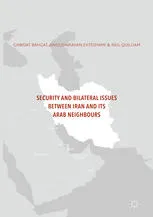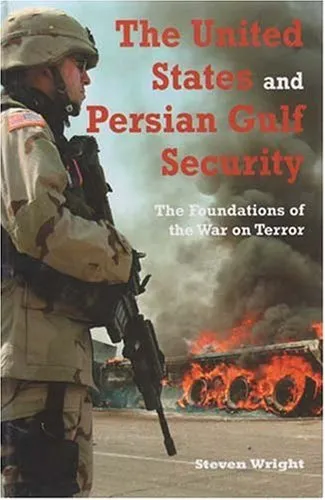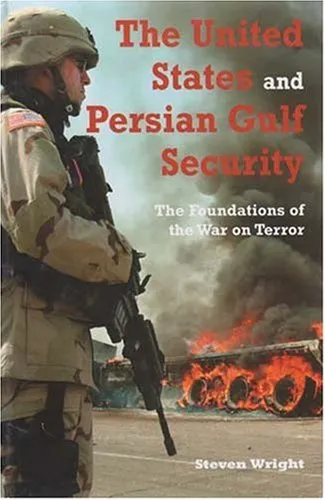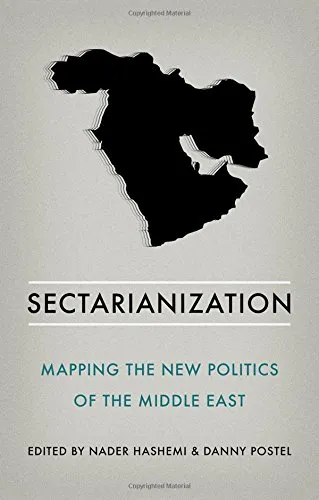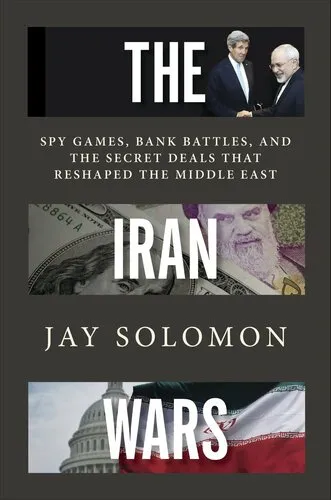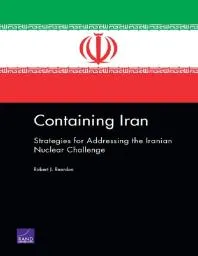Security and Bilateral Issues between Iran and its Arab Neighbours
4.5
Reviews from our users

You Can Ask your questions from this book's AI after Login
Each download or ask from book AI costs 2 points. To earn more free points, please visit the Points Guide Page and complete some valuable actions.Related Refrences:
Introduction to Security and Bilateral Issues between Iran and its Arab Neighbours
The Middle East has long been a region of strategic importance, defined by its geopolitical complexities, resource wealth, and cultural richness. Standing at the forefront of this dynamic is the intricate relationship between Iran and its Arab neighbours. Security and Bilateral Issues between Iran and its Arab Neighbours, edited by Anoushiravan Ehteshami, Neil Quilliam, and Gawdat Bahgat, dives deep into the nuanced geopolitical, economic, and sociocultural factors shaping relations in this tumultuous region. This book provides a comprehensive exploration of the security dilemmas, policy challenges, and evolving bilateral ties that define the interactions between Iran and countries such as Saudi Arabia, the UAE, Bahrain, Iraq, and others.
By leveraging an interdisciplinary lens, the book captures both the historical antecedents and the contemporary dynamics driving regional developments. It lays bare the layers of trust and mistrust, cooperation and contention, and offers an essential resource for academics, diplomats, and policymakers seeking to navigate the volatile landscape of the Middle East.
Detailed Summary of the Book
This book brings together contributions from renowned experts and analysts to dissect the multilayered relationship between Iran and its Arab neighbours. The text examines historical and ideological dimensions while placing a strong emphasis on security and economic interdependence. Key topics explored include:
- The roots of mistrust, stemming from historical divisions like Sunni-Shia sectarianism and the Iranian Revolution of 1979.
- The role of regional power structures, including Iran’s nuclear ambitions and Saudi-led counter-influences.
- Bilateral relations and their variability, framed by political, economic, and strategic calculations across countries such as Qatar, the UAE, and Oman.
- Analysis of policy responses to regional crises, such as the Yemen conflict and the Syrian Civil War, where Iran and its Arab neighbours have been on opposing ends of the spectrum.
This granular examination of relationships draws attention to both the challenges ahead and potential avenues for reconciliation or collaboration, demonstrating that security imperatives and mutual interests, like trade and counterterrorism, could serve as stepping stones for future stability.
Key Takeaways
The book provides a treasure trove of insights that are indispensable for understanding the current and future trajectory of Middle East politics. Some major takeaways include:
- Iran’s central role in defying and challenging traditional power balances in the Gulf region, creating both opportunities and fears among its Arab neighbours.
- The importance of understanding bilateral ties within the broader context of external actors like the United States, Russia, and China, whose policies impact regional dynamics.
- How shifting global energy markets and economic diversification strategies are restructuring Gulf economies, presenting both conflict and cooperation potential between Iran and Arab states.
- The prospect of diplomacy overcoming ideological divides, contingent upon mutual concessions and shared strategic goals, such as reducing the influence of terrorism and extremism in the region.
Readers will come away with not only a deeper understanding of the historical divides in this region but also practical frameworks to analyze its future evolution.
Famous Quotes from the Book
The book is replete with thought-provoking and deeply analytical reflections. Here are some standout excerpts:
"Security in the Gulf is not merely a local or regional endeavor; it is woven into the fabric of global stability."
"The challenge is not in recognizing Iran's aspirations for influence, but in determining how its Arab neighbours respond—through confrontation or cooperation."
"Energy interdependence has the potential to transform rivalries into partnerships, but only if political will exceeds entrenched mistrust."
Why This Book Matters
The importance of Security and Bilateral Issues between Iran and its Arab Neighbours cannot be overstated, as it tackles one of the most pivotal and volatile relationships in the contemporary world order. With the Middle East at the nexus of global energy, trade, and security calculations, understanding the region’s evolving dynamics is crucial for policymakers, academics, and international observers alike.
This book not only deciphers the complexities of Iran-Arab relations but also presents forward-looking strategies that emphasize diplomacy, dialogue, and economic interdependence as keys to regional stability. In an era marked by uncertainty and mistrust, especially with emerging threats like cyber warfare and economic competition, this book serves as a north star for fostering cooperation and reducing tensions in one of the world’s most strategically significant regions.
Conclusion
If you are looking to sharpen your understanding of Middle Eastern geopolitics, power structures, and security challenges, Security and Bilateral Issues between Iran and its Arab Neighbours is an essential read. Its incisive analysis and balanced perspectives make it a vital contribution to the ongoing discourse surrounding Iran and the Gulf Arab states, offering insights not only on past and present dynamics but also recommendations for a more cooperative future.
Free Direct Download
You Can Download this book after Login
Accessing books through legal platforms and public libraries not only supports the rights of authors and publishers but also contributes to the sustainability of reading culture. Before downloading, please take a moment to consider these options.
Find this book on other platforms:
WorldCat helps you find books in libraries worldwide.
See ratings, reviews, and discussions on Goodreads.
Find and buy rare or used books on AbeBooks.
1492
بازدید4.5
امتیاز0
نظر98%
رضایتReviews:
4.5
Based on 0 users review
Questions & Answers
Ask questions about this book or help others by answering
No questions yet. Be the first to ask!
